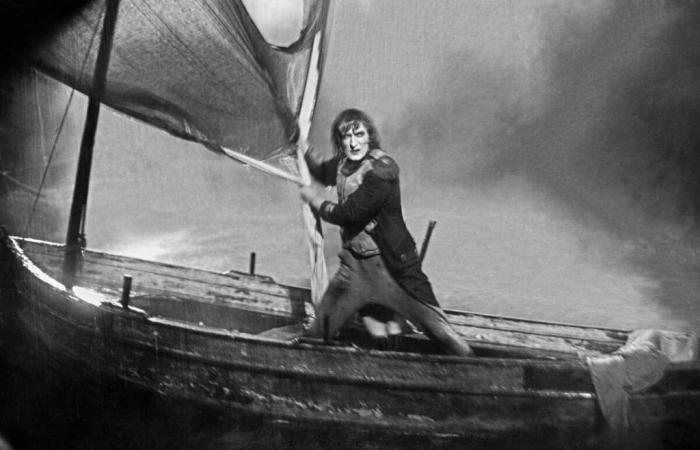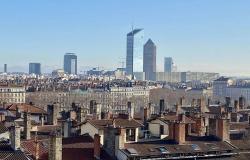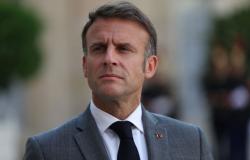He almost still breaks out in a cold sweat when he talks about it. The former journalist for “Les Inrocks” and France Inter, now director of La Cinémathèque française, Frédéric Bonnaud is in La Rochelle to cover the somewhat exceptional news surrounding “Napoleon”, a seven-hour long film directed by Abel Gance in 1927. With this world premiere: this week, film buffs and others will discover a work that has never been shown in its long version since its creation. The first two screenings will take place on July 4 and 5 at La Seine musicale, in Paris, and this Sunday, July 7, at 2:15 p.m. and 7:30 p.m. in the large auditorium of La Coursive, as part of Fema. An event that lives up to the legend of a film dreamed up by Abel Gance, an inventive filmmaker and author of one of the last silent films before the advent of talkies.
Because to put it simply, there was not much left of “Napoleon” from 1927, or to be more precise, there were bits of copies left, damaged and scattered all over the world. “Napoléon was not a cursed film when it came out, it was even acclaimed, but it became so when Abel Gance sent the original copy to the United States. The Americans, who found the film too long, cut it and lost it! At the time, it happened like this, we took the film and we cut. Abel Gance himself will massacre certain versions. Napoleon is a film without an original negative. Subsequently, there were 22 different versions,” reports Frédéric Bonnaud.
With orchestra
At the Cinémathèque française, about fifteen years ago, an initial assessment was entrusted to Georges Mourier, a specialist in Gance, and it was decided to set out to tackle an extraordinary reconstruction, in the image of a film that had become legendary. Those who would tackle it and take up the subject along the way, like Frédéric Bonnaud appointed to head this temple of cinephilia by the filmmaker Costas Gavras who wanted to put an end to “Napoleon”, would not be disappointed. For fifteen years, a handful of experts would set about gluing together thousands of pieces, searching for films in collections at MoMA in New York, in Corsica, in Belgrade, creating a new pattern to obtain a plastic unity and finally creating from scratch a seven-hour symphonic score!
A last detail and not the least which was entrusted to the composer Simon Cloquet Lafolly and the Radio France orchestra. “We had underestimated the scale, the time and the money that it was going to cost,” Frédéric Bonnaud still can’t believe it. Result: fifteen years of work and a budget of just over 4 million euros, which is of course a lot. The National Cinema Center largely contributed its part, but nothing would have been possible without certain partners that we would not have naturally thought of, such as Netflix which will soon offer “Napoleon” on its platform in four episodes or the Swiss producer Michel Merkt. And the French patrons? “None of the big bosses of the CAC 40 who prefer to put their millions into the restoration of Notre-Dame,” tackles Frédéric Bonnaud.
Experimental film
So what will the La Rochelle public see this Sunday, July 7, before everyone else, on the big screen at La Coursive? First, “Napoleon seen by Abel Gance” (its real title) traces the life of the future emperor from his childhood in a military boarding school in Brienne to the first fires of the Italian campaign. It is not a biopic but a great fresco on a hero of the Revolution seen by a filmmaker obsessed with his subject.
As for the length (remember, the film is in two parts of 3 hours 47 minutes and 3 hours 25 minutes), the black and white and the multiple layers of time that could have made this UFO completely outdated, the viewer could be very pleasantly surprised by the rhythm, the multiple superimpositions, the camerawork and a few memorable scenes (“La Marseillaise” sung at the Club des Cordeliers, Napoleon fleeing Corsica on his boat, etc.) “‘Napoleon’ by Abel Gance is not a monument of the past, quite the contrary, it is an outrageously experimental, punk film. It is a film that looks at you, tells you that it is alive, that it is no older than us. It must be seen as a masterpiece that is not dated, take a step towards it, because silent cinema at that time reached a level of perfection,” according to the director of La Cinémathèque.
La Rochelle Cinema Festival from June 28 to July 7, 2024. Full program on festival-larochelle.org.






